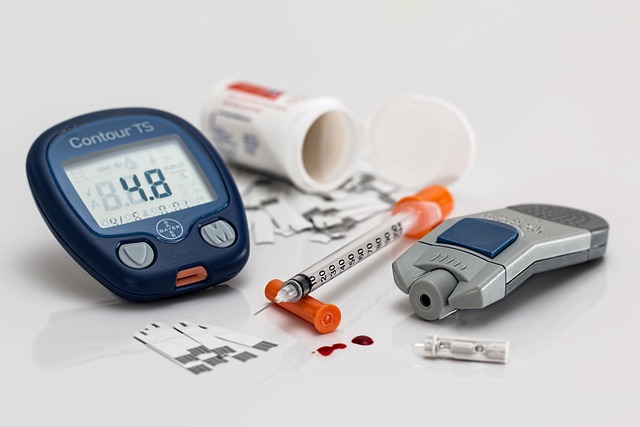Diabetes blood tests are crucial for managing glucose levels, enabling patients to take charge of their health and prevent complications. Regular at-home testing allows for proactive adjustments to treatment plans, including medication dosages and lifestyle changes. Preparation involves fasting, proper clothing, avoiding exercise, and sharing medical history. Understanding 'normal' glucose levels (80–130 mg/dL) is essential for informed decision-making with healthcare providers.
“Learn how to effectively monitor diabetes with regular private blood tests. This comprehensive guide delves into the intricacies of diabetes management, emphasizing the significance of consistent blood sugar monitoring. Discover why and how to prepare for your diabetes blood tests, and gain insights into interpreting results accurately. Understand the impact of regular checks in managing this condition. Optimize your health journey with this essential information on diabetes blood tests.”
- Understanding Diabetes and Blood Sugar Monitoring
- The Importance of Regular Private Blood Tests
- How to Prepare for and Interpret Your Diabetes Blood Test Results
Understanding Diabetes and Blood Sugar Monitoring
Diabetes is a chronic condition that affects how your body processes glucose, a type of sugar, as fuel. Over time, high levels of blood sugar can lead to serious health problems. Regular private diabetes blood tests are crucial for managing this condition effectively. These tests allow individuals to monitor their blood sugar levels, providing valuable insights into the overall health of their body and enabling them to make informed decisions about their care.
By regularly checking blood sugar levels, individuals with diabetes can identify trends, understand how different foods and activities impact their blood sugar, and adjust their treatment plans accordingly. Diabetes blood tests are essential tools that empower people to take charge of their health, prevent complications, and live active lives. They offer a direct line of communication between the patient and their healthcare provider, facilitating timely interventions and adjustments to medication or lifestyle changes as needed.
The Importance of Regular Private Blood Tests
Regular private blood tests are a vital tool in managing diabetes. These tests provide individuals with valuable insights into their glucose levels, allowing for proactive care and early detection of any fluctuations or complications. By conducting these tests at home, diabetics can conveniently monitor their health daily, week, or as recommended by their healthcare provider. This frequent surveillance enables prompt action if needed, such as adjusting medication dosages or making lifestyle changes to maintain optimal blood sugar control.
The frequency and types of diabetes blood tests may vary based on personal health status and recommendations from medical professionals. However, consistently tracking glucose levels is key to preventing long-term complications associated with uncontrolled diabetes. Regular testing empowers individuals to take charge of their health, fostering a deeper understanding of how lifestyle choices impact their condition and overall well-being.
How to Prepare for and Interpret Your Diabetes Blood Test Results
Preparing for your diabetes blood test is crucial for accurate results. Fasting for at least 8–12 hours before the test is essential, as food and certain medications can affect your glucose levels. On the day of your test, ensure you bring your identification and any relevant medical history. Some basic steps to follow include wearing loose clothing to easily access veins, avoiding strenuous exercise immediately before the test, and informing the healthcare provider about any recent illnesses or changes in medication.
Interpreting the results requires understanding what ‘normal’ means for diabetes management. Your healthcare provider will discuss target ranges with you, typically aiming for a fasting plasma glucose level between 80–130 mg/dL (milligrams per deciliter). Higher levels may indicate prediabetes or type 2 diabetes, while consistently elevated readings can signal the need for treatment adjustments or lifestyle changes. Regular monitoring is key; consistent tracking of your blood sugar levels over time helps you and your doctor make informed decisions to manage your diabetes effectively.
Regular private blood tests are an essential tool in managing diabetes, allowing individuals to closely monitor their blood sugar levels. By understanding how to prepare and interpret these results, folks with diabetes can actively navigate their health, making informed decisions to maintain stable blood sugar and live a vibrant life. The diabetes blood test is a powerful instrument that enables proactive care, empowering folks to take charge of their well-being.
